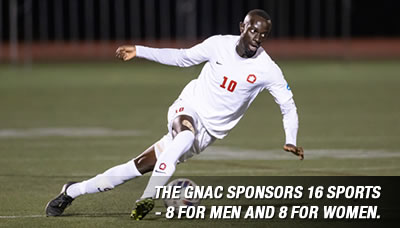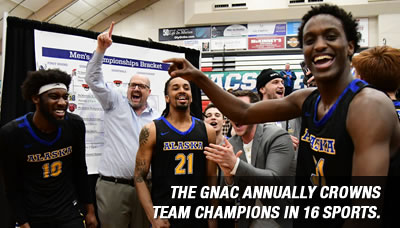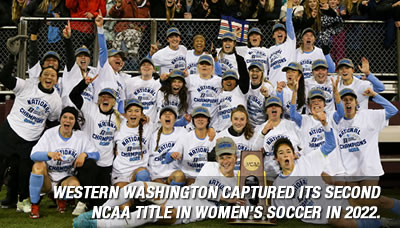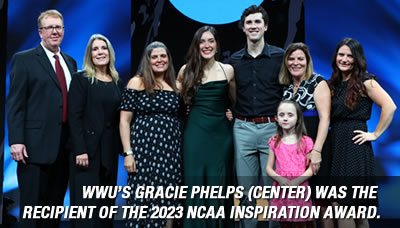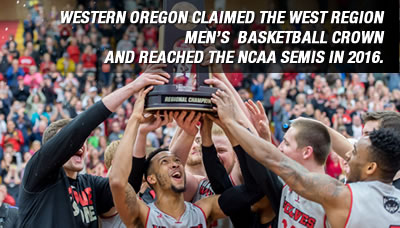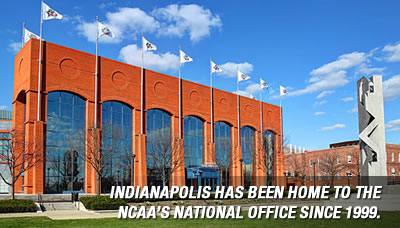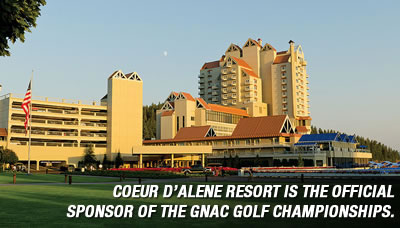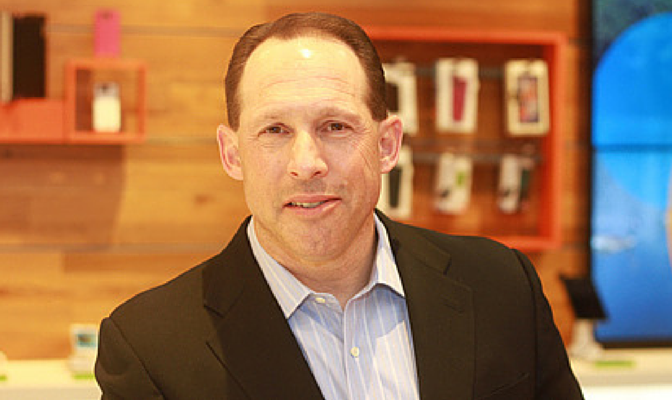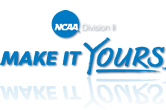Monday, August 3, 2015
By MARK MOSCHETTI
SPU Sports Information
ATLANTA – He was talented enough on the soccer field to take his game to the highest level: that of a professional player.
But in 1990, getting in on the ground level of something far removed from soccer started former Seattle Pacific star Glenn Lurie on a different kind of professional career …
… one that was going nowhere but up – and going there fast.
"While working in Manhattan, the CEO of the company I worked at had a crazy thing called a wireless cellular phone. I thought it was the coolest technology in the world," said 49-year-old Lurie, the mere memory of that still filling his voice with enthusiasm. "He also had one built in his car."
That then-revolutionary concept of communicating quickly got a grip on Lurie. So firm was that grip that the guy who scored 31 career goals to help the Falcon men win three NCAA Division II championships in four years before going on to a pro indoor soccer career, essentially hung up his cleats and put on a salesman's suit.
Today, that one-time salesman is now the president and CEO of AT&T Mobility in Atlanta.
But far from merely occupying the corner suite, Lurie is recognized as one of the driving forces who have helped make smartphones a way of life. Furthermore, for almost any wireless device one can think of – in the home, at the desk, in the briefcase, or even in the car – chances are he has had a hand in that, too.
"It wouldn't be fair to say that I could see back then that we would get to the levels we are at now, where you have everything connected all through wireless technology." said Lurie, who stepped into his current AT&T role about 10 months ago. "I've never been more excited about our business."
Then again, Lurie was excited about the business back when even the least-expensive phone would have been considered too expensive for most people.
"A flip phone was $2,000; a cheaper one was $900, and it was a buck a minute (for air time)," Lurie recalled with a laugh. "During the first month of selling wireless phones, I made more money than I made in my entire soccer career."
But even now, Lurie has never forgotten soccer …
… or his Seattle Pacific roots.
THE START OF SOMETHING BIG
During his senior year at Wilson High School in Portland, Glenn Lurie had the same big question in his mind as thousands of high school seniors everywhere:
Where to from here?
His ultimate choice became a very easy one.
"It really only took one visit to SPU and to meet the team at that time," Lurie said. "The year before I got there was the first year they didn't even make the NCAA playoffs. I knew when I got there as a freshman (in 1983) that a lot of talent was coming in. I went to training camp, and everybody was really good."
The Falcons were just 3-2-0 coming out of the blocks that fall. Then, they got into a winning groove, and kept winning, all the way through the first Saturday in December when they beat host Tampa in the NCAA championship game, 1-0.
"We got outplayed in that game. But that was kind of a whirlwind freshman year," recalled Lurie, who contributed four goals and one assist as Seattle Pacific finished 16-4-1. "It was an incredible year."
TITLES IN TRIPLICATE
For most players in any sport, playing even one national title game would be considered a career highlight.
For Lurie, things were just getting started. He and Seattle Pacific would wind up playing in the NCAA championship contest all four years, winning three of them: 1983 against Tampa, 1985 against Florida International, 3-2, and 1986 at home in Seattle Memorial Stadium against Oakland of Michigan, 4-1.
The only loss was during his sophomore year in 1984 when Florida International came to Seattle and won in overtime, 1-0.
"Going into junior year, it hit us that we had an incredible group of players at that time," Lurie said.
Lurie and his teammates made up for that title-game defeat in 1985. The Falcons scored 89 goals, with Lurie netting a career-high 17. Seattle Pacific went 20-3-0, capped by the 3-2 win against Florida International in a rematch of the 1984 final. Lurie scored the third of those three goals for a 3-0 lead before FIU rallied to make it a nail-biter at the end.
"All would argue that that was the best team in the history of the school," Lurie said.
In just the fifth game of his senior season in 1986, Lurie suffered a broken toe in a preseason game at Florida International. He missed four games and had limited playing time in others, but was back at full strength in time for the playoffs, which ended with the championship-game win against Oakland of Michigan.
"It's always fun to reminisce," Lurie said. "I keep up with lots of the guys, coach (Cliff) McCrath, and everyone else."
ON TO THE PROS
Injury and diminished senior year stats aside, Lurie still had a solid enough career to be invited to the prestigious Senior Bowl game, and was drafted by the Tacoma Stars of the Major Indoor Soccer League. He never suited up for the Stars, getting traded to Cleveland three days after the draft.
Lurie eventually had other indoor stops at Atlanta, Memphis, Milwaukee, and Portland. After the 1993 Continental Indoor Soccer League season with the Pride in his hometown, Lurie received a promotion at Cellular One, where he had been working since 1990.
It was time to make a tough decision. In addition to his upward mobility on the job, he also was married by then to college sweetheart and former SPU gymnast Suzanne Schwartz and had just become a father.
"I loved the game, and I had a wonderful time getting to play pro in my hometown," he said. "But I had to say I was done with soccer."
RAPID-FIRE CHANGE
In the world of communications, no one is ever done – and the rate of change can seem mind-numbing.
Consider this: In the early 1990s, even the most optimistic forecast projected that just 10 percent of the population would have one of those new-fangled cell phones.
Today, it seems nearly everyone has one.
"What really got me excited about it was the technology," said Lurie, who led negotiations to bring both the first iPhone and iPad to AT&T and the industry.. "I loved the fast pace. I really fell in love with the business."
Through various transactions over the years, the Cellular One and McCaw entities came under the AT&T corporate umbrella. Lurie, in ever-advancing roles, was always part of the picture. He and wife Suzanne, son Mitchell (now 22) and daughter Sydney (now 19) made the move from Los Angeles to Atlanta in 2004. He served in numerous positions before ascending to the president / CEO spot last September.
Under his direction is a $75 billion business with approximately 60,000 employees.
"My ultimate goal was to run a business like this, and I feel very honored to be doing so," Lurie said. "The best part of my job is the people I work with. We have very engaged employees."
Soccer is still a part of Lurie's life. Mitchell will be a senior on the Rutgers University team this fall, and Sydney plays at Auburn, where she will be a sophomore.
Even with all of the changes in the communications world, one thing hasn't changed for Lurie:
SPU and AT&T are still the most important letters in his personal alphabet.
"I've said this many times – and I do a lot of public speaking: I wouldn't be sitting here in this role without the game of soccer and without my experiences at SPU," Lurie said. "Team sports, without question, teach you a lot about how to solve problems, how to get along with others, and how to compete.
"The reality was that what I got taught at SPU was there was more to life than soccer," he added. "I loved the game – my teammates would say I was obsessed with it. But you can replace it with other ways of working with others and competing. For me, the wireless business was that replacement."
And just as he did on the soccer field …
Glenn Lurie has taken it to the highest level.

